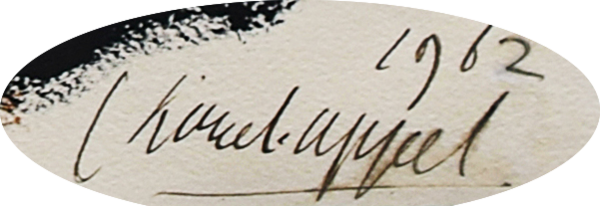

(Amsterdam, 1921-Zurich, 2006)

A pupil of the Academy of Fine Arts in Amsterdam during the Second World War, he was influenced by Picasso, Dubuffet and Matisse. In 1948, with Corneille and Constant, he opposed the dominant geometric abstraction in the Netherlands, in the wake of Mondrian's neoplasticism.
A year later, they participated in the founding of the CoBrA collective, standing for Copenhage, Brussels, Amsterdam, named after the cities from which its members come. Among them, Dotremont, Alechinsky, Jorn and Bury. The movement, close to communist ideas, refers to Nordic folk art, primitive art, children's drawings and surrealist automatism. These artists advocate a spontaneous and experimental art and art of fools with an international ambition, faithful to the principles of the avant-gardes.
A contemporary of the Compagnie de l'Art brut founded by Jean Dubuffet at the same time, CoBrA is part of this trend of counter-culture. He rejects the established values and proposes a new beginning, freed from conventions and claiming the spontaneity of the naive.
A traveling artist, Karel Appel has lived in several countries, notably in France, where he settled in 1950. His work was then actively supported by critics such as Michel Ragon, or Michel Tapié, who sees in it the European equivalent of American abstract expressionism embodied notably by Jackson Pollock.
Karel Appel develops a gestural vein in all its dimensions. His painting continues to express the violent feelings that inspires the world. After a period of transition in the 1970s during which he moved closer to abstraction, the artist experienced a pictorial revival in the 1980s.